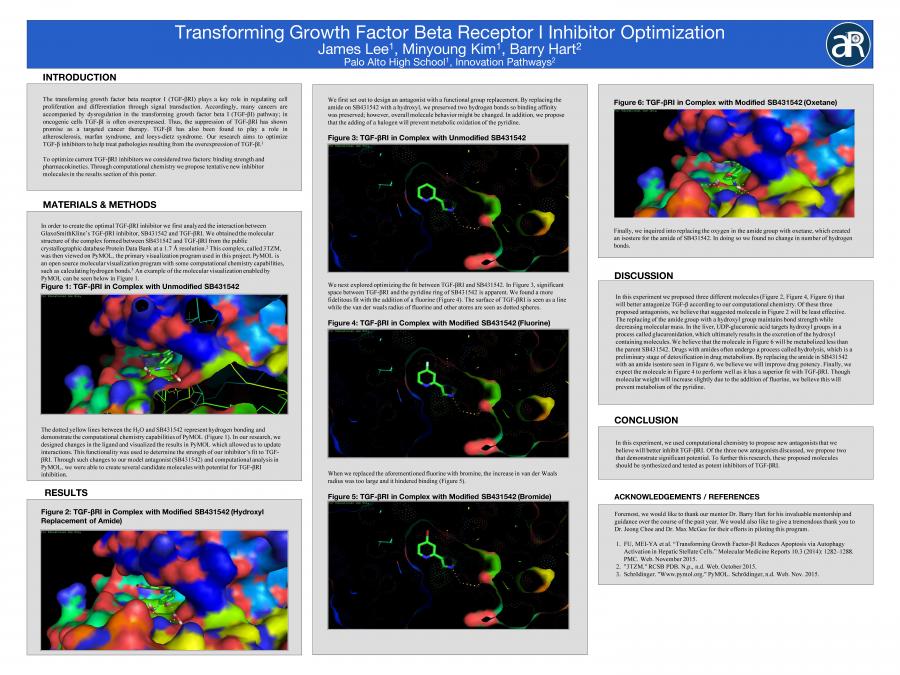Designing a TGF-beta inhibitor by James L. & Minyoung K.
Presentation
Summary
In this research project we will be developing a refined TGF-beta inhibitor by improving upon current TGF-beta antagonists. TGF-beta is a protein primarily involved in regulating cell proliferation and differentiation. TGF-beta typically stops the cell cycle at G1, preventing additional growth. It also plays a role in apoptosis. Accordingly, many cancers are often accompanied by mutations in the TGF-beta pathway. TGF-beta has also been found to play a role in atherosclerosis, marfan syndrome, and loeys-dietz syndrome. However, because we are primarily interested in inhibiting TGF-beta, we will be focusing on treating pathologies resulting from overexpression of TGF-beta. Interestingly, though TGF-beta plays a beneficial role in healthy cells by helping regulate the cell cycle, in oncogenic cells TGF-beta is often overexpressed, affecting alternate pathways. Thus, suppression of TGF-beta in cancer cells has shown promise as a targeted cancer therapy. It is also known that overexpression of TGF-beta leads to immunopathies. Recent studies have suggested that an overabundance of TGF-beta may lead to a wide range of allergic diseases in humans, given that TGF-beta supports the expansion of regulatory T cells. In finding a better antagonist for TGF-beta we aim to maximize efficiency and circulation time in the body while minimizing side effects. In doing so, we hope to help treat some of the aforementioned conditions for others in the field...Our research project will primarily be conducted using online software. First, we will investigate the nuance structure of TGF-beta and it’s receptor using online public resources, notably RCSB Protein Data Bank. RCSB Protein Data Bank will allow us to view both the chemical and three dimensional structure of molecules of interest. Moreover, it will help us characterize bonds within the proteins relevant to our research. Then, we plan on using public, open source programs such as PyMOL and RasMol to simulate docking of our antagonist. We expect this aspect of our research project to take up the most time due as we optimize the fit of our TGF-beta inhibitor...

